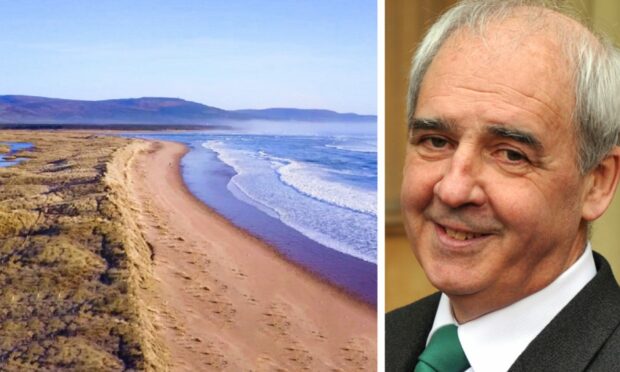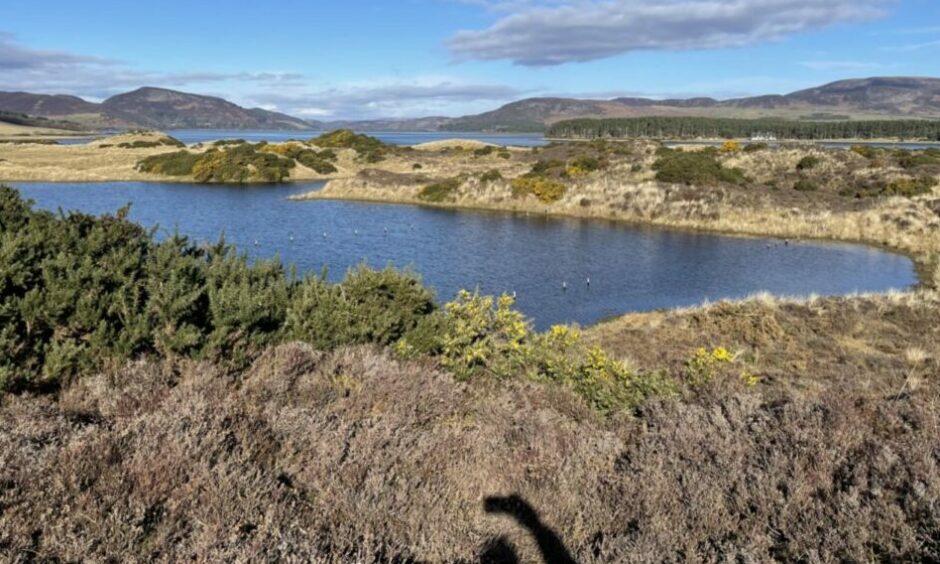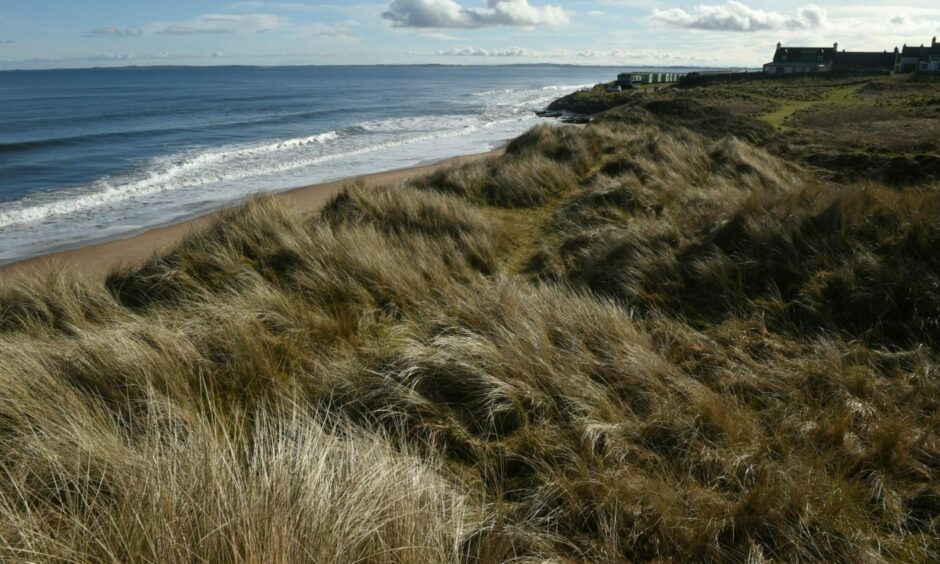A leading economist believes a planned world-class golf course could help stem an exodus of young people from Sutherland’s rapidly ageing population.
Prof David Bell says the area faces a future where younger residents continue to move away to find work.
This leaves older people requiring additional health and social care services and schools facing closure.
But he said the controversial Coul Links golf project could have a significant impact on job opportunities.
Up to 400 jobs forecast
Prof Bell, professor of economics at Stirling University and a Scottish Government adviser, is also captain at Royal Dornoch Golf Club.
He provided a socio-economic study alongside the planning application submitted for the course this year by Communities for Coul (C4C).
He forecasts the development would create up to 400 jobs and generate more than £11 million for the Scottish economy.
The academic said: “Perhaps the key concern in East Sutherland is population decline caused by the emigration of young people with consequent disruption of public services and consequent reduction in quality of life.
“The area has a rapidly ageing population compared with Scotland as a whole.
“Without significant employment opportunities in the area, there is a very real prospect of a continuing drain of young people which in turn increases the chances that schools become non-viable while health and social care facilities are inadequate to meet the pressures placed on them.
“The Coul Links project would have a significant effect on employment prospects for local young people.”
C4C revived the project in 2021 after a bid by a previous group was rejected by Scottish Ministers in 2020 following a public inquiry.
The new application has attracted nearly 1,000 comments, with more than twice the number of objectors than supporters.
However, C4C says there is more support for the project from people living in the area.
A community ballot held in 2021 also showed 69.2% in favour.
Golf course can ‘transform’ the area
C4C director Gordon Sutherland said the course could address major socio-economic challenges.
“New and sustainable initiatives are needed to address them and to try to ensure a viable future for our increasingly fragile communities before it is too late.
“That is one of the main reasons that our plans have received strong support locally.
“The golf course development at Coul Links can economically transform our area, creating many good new jobs and training opportunities for local resident and for people of working age looking to move here.
“The economic benefits will also extend more widely to other parts of the Highlands.”
Opponents of the plan include a coalition of conservation groups which says it is concerned about the damage a golf course would do to the rare coastal dunes.
Buglife, Butterfly Conservation, Plantlife, Marine Conservation Society, the National Trust for Scotland, RSPB Scotland and the Scottish Wildlife Trust argue the new proposals differ very little in scale from the previous application.
On behalf of the coalition, Bea Ayling, RSPB Scotland conservation officer, said: “Coul Links is protected both nationally and internationally because of its importance for nature, making the extensive plans for a golf course here completely inappropriate.”
She said the proposal has failed to address many of the reasons why the previous application was turned down.
Environmental damage ‘outweighs economic benefits’
“Scottish Ministers concluded that any socio-economic benefits would be vastly outweighed by the environmental damage caused.”
She added: “Protected areas are vital, particularly due to the nature and climate emergency we are in.
“The conservation coalition is extremely concerned that Coul Links is being considered for a development of this scale.
“The site is in need of some management and there are funding mechanisms available to landowners who plan to improve the condition of protected areas.”
Are you interested in more exclusive and breaking Highland and Islands news from the P&J? If so, why not join our dedicated Facebook page HERE



Conversation